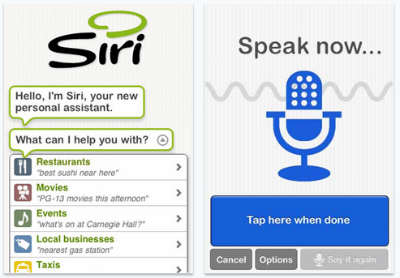Recently, Google’s Eric Schmidt sent off a letter to the Senate Subcommittee On Antitrust, Competition Policy, and Consumer Rights. It’s not exactly the kind of thing that happens every day, so plenty of places sat up and took notice. But what was Schmidt’s letter about? It was about a whole new threat to Google’s operations, one that represented such a threat that Google was hardly able to be classified as a monopoly because of its sheer existence. This threat was called Siri, and it may well kill Google.
You may have heard already about one analyst’s study in which a variety of iPhone 4S users discovered that, once they started to figure out just how Siri worked, they started using it more…and Google less. In fact, all the respondents in the survey said they hadn’t used Google for searching once since they got the iPhone 4S, and almost three quarters of the respondents said that they saw no reason to ever use Google again.

Now, there were plenty of people who cried foul about that survey. The biggest flaw in it was the sample size–only forty people responded to that survey. Thus it wasn’t so much the actual results of the survey that were the problem so much as the implications. Granted, only forty iPhone 4S users were involved in this survey, and thus, only about twenty seven respondents said they’d never use Google again. But the implications of this–if the numbers hold true throughout all iPhone 4S users–it would represent a significant, possibly killing, blow to Google, who would not only lose traffic, but also advertising dollars. And if Google loses clout in advertising and the accordant revenue, it poses a risk to many websites out there that depend on Google AdSense and Google AdWords and the like to provide revenue. Plus, the loss of web traffic from sites that get most of their standing from Google News will likely also find themselves imperiled.
The fact that Android, Google’s mobile operation, has been developing its own equivalent of Siri–dubbed Iris–suggests that they’re taking the matter pretty seriously indeed. If they want their own stake in the voice controlled search capability field, then they must be expecting it to take some of their search traffic away.

So it’s not too far to suggest that Siri may end up being a Google killer. It will take some time to find out just how this all boils down, but you may want to be planning for a future in which Google has been severely reduced in stature, or possibly been outright removed. This may never happen, of course, but a plan in place will prevent a lot of sleepless nights.
Related keywords: Siri, Google, search engine, small business